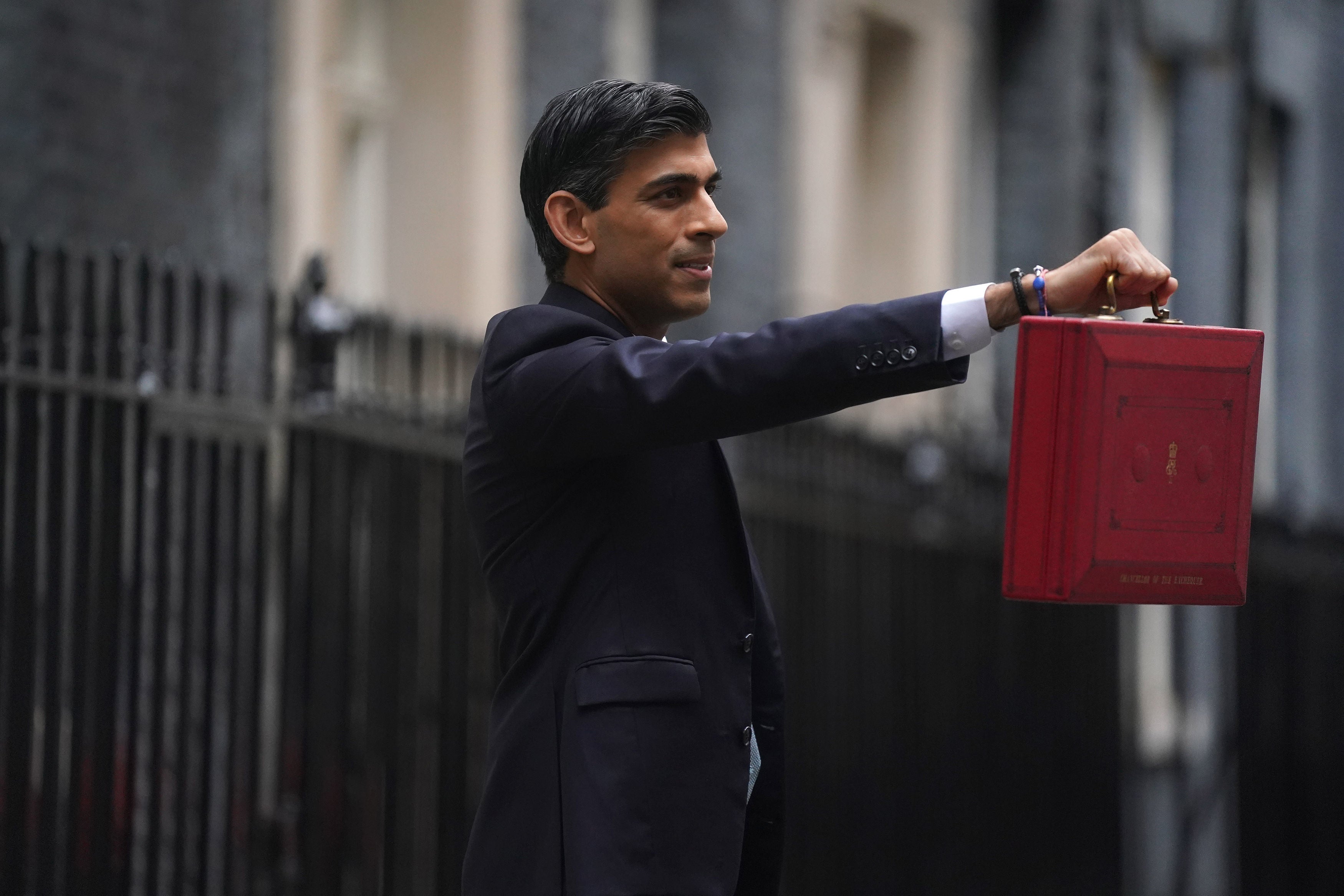Rishi Sunak is warned foodbanks will have to ‘pick up the pieces’ after Budget
‘There just wasn’t enough for some of those in our society who need it the most’

Britain’s largest charity of emergency food parcels has warned foodbanks will have to “pick up the pieces” this winter after Rishi Sunak resisted calls to reverse a cut for all universal credit claimants at the Budget.
The chancellor did unveil extra support for around two million universal credit recipients who are in work – decreasing the “taper rate” – but campaigners have stressed that many will still be left struggling to make ends meet, including those out of work.
Earlier this week the Resolution Foundation’s post-Budget analysis said that despite the Treasury’s changes to universal credit, around 75 per cent of the 4.4 million households claiming the benefit will worse off.
This is largely down to the decision to remove the £20-a-week uplift to the benefit – introduced at the beginning of the Covid crisis – earlier this month, the think tank added.
Speaking to The Independent, Garry Lemon, the director of policy and research at the Trussell Trust foodbank group, stressed that among all the spending announcements on Wednesday “there just wasn’t enough for some of those in our society who need it the most”.
“I’m talking about people who cannot work,” he said. “That might be due to disability, illness or caring responsibilities for example.
“That headline universal credit pick-up doesn’t help them, but these are the people we see disproportionately at foodbanks and I would say they deserve support too.”
“The chancellor himself recently said that everybody should be able to afford the essentials – we as a society can all agree on that – but these people were frankly ignored in the rhetoric of making working pay and in the big spending decisions.”
I really wish we as a nation could begin to have a more grown-up conversation about work, about who can and who can’t
He added: “From the point of view of someone who represents food banks, I’m deeply disappointed by the Budget. Obviously it’s a welcome thing to see low-earning people being able to keep more of what they earn, don’t get me wrong, absolutely welcome that, but foodbanks are once again going to be left to pick up the pieces for people who can’t work.
“I really wish we as a nation could begin to have a more grown-up conversation about work, about who can and who can’t. This is all taking place in the shadow of £6bn being taken back out of universal credit – it’s a huge, huge cut”.
Conservative MPs who had been calling for the decision to remove the uplift to be reversed, including the former cabinet minister Iain Duncan Smith, however, have welcomed the move to cut the taper rate – the amount of every £1 lost when someone takes on work – from 63 per cent to 55 per cent.
Nigel Mills, a Conservative MP who sits on the work and pensions committee, who had been pushing for the chancellor to keep the uplift over the summer, said: “The big reduction in taper rate and increase in work allowances are very positive, especially starting from December. For claimants with children these will replace the £20-a-week uplift pretty well.
However, he told The Independent: “For those not in work this will be of no assistance. Sorting out the rate of withdrawal of benefits is positive but doesn’t fix a problem with the starting level.”
Unveiling the change to the taper rate on Wednesday – the final announcement in his Budget speech – Mr Sunak said what he called a “tax on work” would be reduced no later than 1 December.
“The universal credit taper withdraws support as people work more hours. The rate is currently 63 per cent, so for every extra £1 someone earns, their universal credit is reduced by 63p,” he said.
“To make sure work pays, and help some of the lowest income families in the country keep more of their hard-earned money, I have decided to cut this rate, not by 1 per cent, not by 2 per cent – but by 8 per cent.”
Subscribe to Independent Premium to bookmark this article
Want to bookmark your favourite articles and stories to read or reference later? Start your Independent Premium subscription today.

Join our commenting forum
Join thought-provoking conversations, follow other Independent readers and see their replies